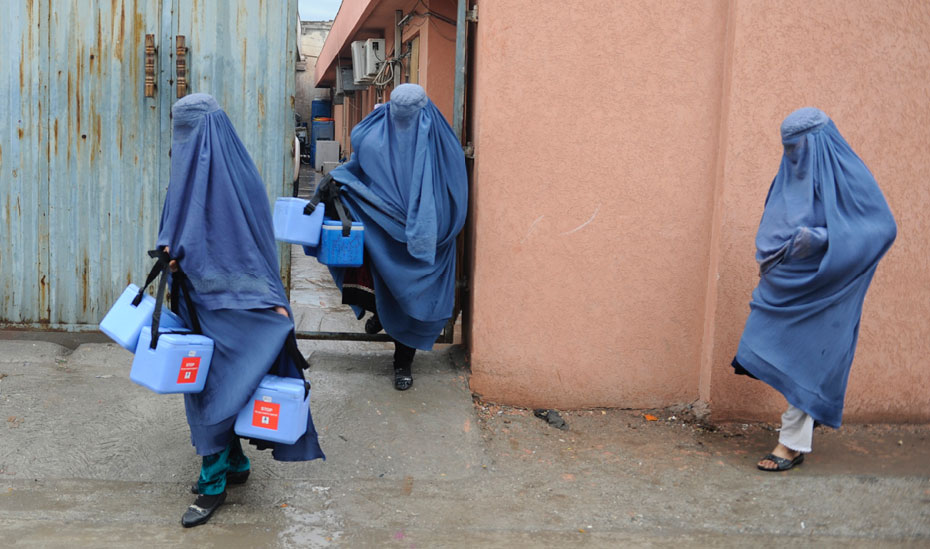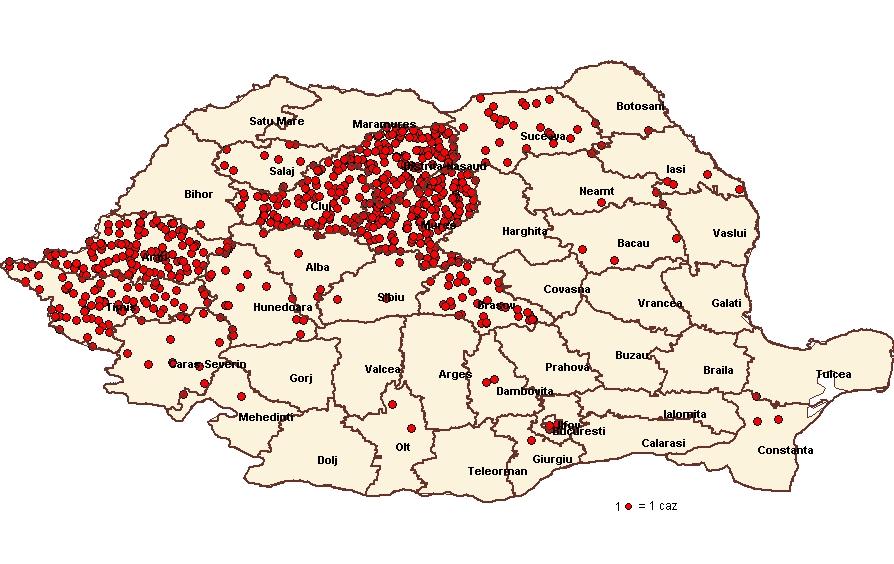The number of people affected by polio has fallen by 99% since a Global Polio Eradication Initiative was launched in the 1980s, bringing the vaccine to billions of children in every country of the world.
Now we are on the home straight, with only a small number of polio cases left, largely concentrated in the mountainous regions between Afghanistan and Pakistan.

Female volunteer vaccinators in Afghanistan at the heart of the polio eradication effort
But as global and local organisations unite against the virus in hard-to-reach war-torn regions where it has proven a stubborn foe, the risk of outbreaks elsewhere remains real too. Rather than being on a one-way journey to a polio-free world, there remains a danger of slipping into reverse.
Maintaining vaccine coverage
Europe was declared polio free in June 2002 and most parents have never seen the devastating symptoms of polio yet they are asked to have their children vaccinated against the disease. This, according to some, is one of the key reasons for a fall in vaccination rates. Others blame anti-vaccine groups and the spread of myths on social media.
Romania vaccination rates
Romania’s Secretary of State and head of the Department of Emergency Situations has hit out at the anti-vaccination movement in his country, warning that parents who ignore the advice of their doctors are putting their own children – and potentially many others – at risk.
Dr Raed Arafat took to Facebook to share his views in blunt terms:
“As a doctor, I am telling you that the worst thing would be the reappearance of diseases that have been eliminated thanks to vaccination campaigns,” he said. He said public personalities should refrain from criticising vaccination unless they have ‘indisputable scientific evidence’. “At this moment, the only indisputable evidence is in favour of vaccination, not against,” he wrote. “I ask and urge you to become well informed before condemning your child and other children to death or mutilation for life!”
Strong words. And, as critics were not slow to highlight, there have not yet been any new polio cases in Romania. However, Dr Arafat’s point is that the slide in vaccination rates leaves the door open to the grim return of preventable diseases.
After measles, what next?
This has already been brutally illustrated by measles outbreaks in Romania over the past 12 months. Three children – who were too young to be vaccinated – died in 2016 during an outbreak that affected more than 700 people.
In an interview with Vaccines Today, the WHO Regional Office for Europe alluded to ‘system-wide challenges’ in Romania. The measles outbreak may be a symptom of a much wider problem which includes low vaccine uptake, unequal access to vaccination, and a lack of information about who is being missed and why.

Measles outbreak in Romania 2016
“It is a tragedy that lives have been lost, and our thoughts are with the families and communities who have been affected by this measles outbreak,” said Robb Butler, Programme Manager, Vaccine-preventable Diseases and Immunization programme, WHO Regional Office for Europe.
“Romania remains endemic for measles and rubella and at high risk of polio transmission following importation. This is very concerning. The solution is dependent on strong political commitment and urgent action by health authorities to ensure vaccination is available to all individuals within Romania’s borders.”
Ending polio could be the greatest public health achievement of our generation. But it will only happen if parents everywhere take the advice of experts at the WHO, professional medical and scientific societies – and their own doctors – to bring their children for their vaccines on time, every time.
On that note, here are a couple of photos I took at WHO headquarters in Geneva. It shows a statue of a health professional vaccinating a child against smallpox – the first and only human infectious disease to be eradicated. On the ground is a plaque celebrating the ‘unprecedented achievement made possible by all nations working together’.
The world was declared smallpox free in 1980. Will they commission a new sculpture to celebrate the end of polio?
A reminder of what can be achieved when all nations work together (@WHO HQ, Geneva) #smallpox #endpolio #vaccineswork pic.twitter.com/JbPFpxGiVd
— VaccinesToday (@VaccinesToday) November 29, 2016




